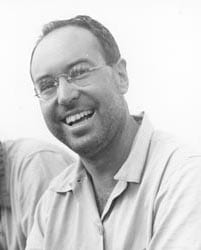Willard Dow
The Woods Hole Oceanographic Institution announces with great sorrow
the death May 27, 2006 of retiree Willard Dow at Harborside Healthcare
in Falmouth, MA. He was 89.
Born June 23, 1916 in Cambridge, MA, Willard Dow grew up in Waltham, MA
and attended Tufts University, graduating in 1942 with a B.S. degree in
physics and an emphasis in electronics and radio. He took a
number of postgraduate courses and served as an instructor at Tufts
from June 1942 to June 1944, teaching the physics lab for the Navy V-12
officer training program and working on the college’s Signal Corps
research project. He joined the staff at Sylvania Electric Co., in June
1944 as an electronics engineer, designing and fabricating high-gain
microwave frequency amplifiers for the early military radar systems for
the MIT Radiation Lab. He built aviation radar for the Royal Air
Force and for the US. Army and Navy Air Forces, equipment used
extensively in Europe and the Pacific. He also helped develop and
produce the transducer for the Navy, used in the atomic bomb
experiments in the Pacific.
Willie Dow began his long career at Woods Hole Oceanographic Institution in 1946 when he responded to an ad in The Boston Globe
for a research associate, working on a casual basis weekends only
beginning December 21, 1946 on Project B-16. In May 1947 he was hired
on a full-time basis in the underwater acoustic group headed by J.
Brackett Hersey. With much of the Hersey group’s work
Navy-supported, Willie and other WHOI employees made many cruises in
Navy ships, including one on the USS Maloy
with then WHOI Director Admiral Edward Smith, Columbus Iselin, Bill
Shultz, Stan Bergstrom, Al Vine, Carlton Wing, Tom Rennie and J.B.
Hersey, among others.
A licensed radio amateur since 1936, Willie Dow combined his interest
in electronics and radio to make many contributions to ocean sciences
and engineering. He designed the famous “suitcase amplifier”
which facilitated calibrated measurements of underwater sound. These
portable, broadband, high-gain amplifiers had very low microphonics and
were used for a wide variety of pioneering sound transmission
measurements at several research facilities. Hersey and Dow
introduced the technique of an “inverted echo sounder” for accurately
positioning tethered instruments. Dow also developed
shock-excited sound sources that were used to make high-resolution
travel time measurements of the seafloor reflections, particularly
effective in delineating sedimentary structures in the first few meters
of the seafloor. He worked on some of the early underwater
acoustic telemetry systems and deep-towed hydrophone arrays.
He was promoted to research engineer in 1950 and to electronics
engineer in 1952. In 1963 he was promoted to research specialist,
transferring to the Ocean Engineering Department in 1972, where he
remained until he retired in 1979. Despite enduring chronic
sea sickness, Willie Dow sailed on research cruises on the ketch Atlantis, the Bear, and the Chain. When his prototype sound source was lost in an experiment on one Chain
cruise, he built an entire replacement from spare parts. He was
the author or co-author of 14 publications in oceanography and
underwater acoustic instrumentation, and held four patents.
Active in the community, Willie Dow founded the Sippewissett
Association in 1965 along with Philip Hamilton, Carolyn Miller and
Andrew Wessling, and he served as its president for 20 years. In
addition to its social activities, the neighborhood group was involved
in zoning and conservation matters.
His great interest in light opera led to his introduction to Evelyn
Parker, a talented pianist who taught and played professionally. They
were married in1954 and celebrated their 44th anniversary shortly
before her passing in 1998. The Dows were part of the Trysail Chorus
that produced four Gilbert & Sullivan operettas from 1949 to 1953
in Falmouth, and they had season tickets to the College Light Opera
Company from its founding in 1968. Willie was a regular at the
Wednesday folk dances in Woods Hole for forty years, and was
particularly fond of the Greek dances. He was a sharp word
punster, and was an unbeatable Scrabble player (word has it that the
late Captain Emerson Hiller was a favorite challenger). The Dows were
longtime members of the Falmouth Unitarian Fellowship.
Willard Dow is survived by a niece, Susan Evans of Dade City, FL; a
nephew, David Healy of Arizona; and two cousins, Laura Parker of New
York City and Janet Parker Osborne of Lynnfield Center, MA.
A memorial service will be held August 7, 2006 at 7:00 p.m. at the Unitarian Universalist Fellowship,
840 Sandwich
Road, in East Falmouth. A
reception will follow the service.

